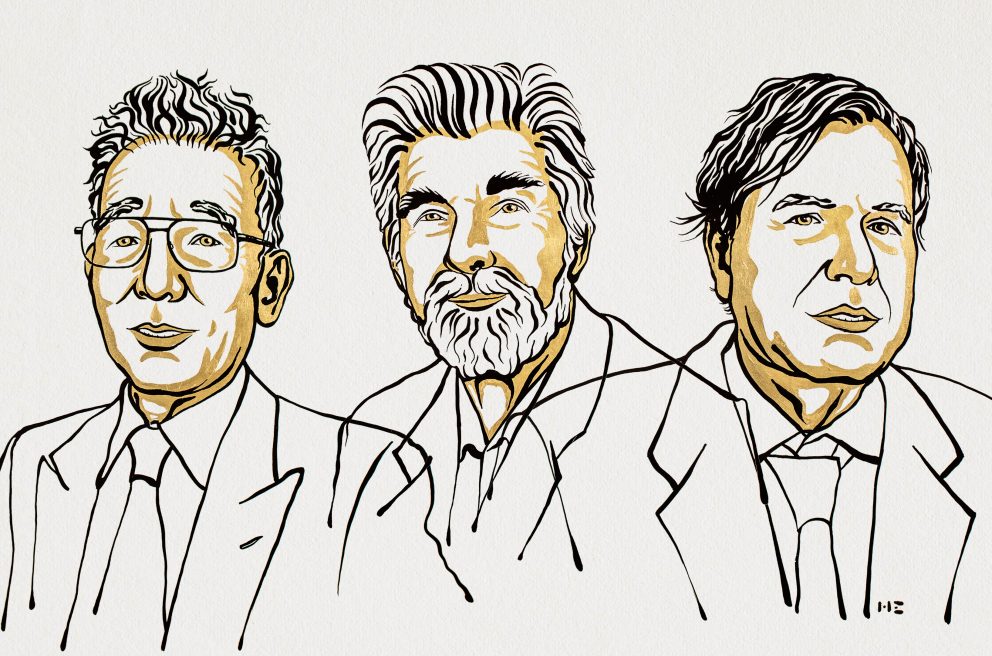PHYSICS
The Nobel Prize in Physics is awarded to Syukuro Manabe, Klaus Hasselman, Giorgio Parisi
The Nobel Prize in Physics is one half jointly awarded to Syukuro Manabe, Klaus Hasselman, and the other half Giorgio Parisi.
Laureates Syukuro Manabe and Klaus Hasselman are awarded the Nobel Prize for their groundbreaking contributions to the physical model of the earth's climate to help predict global warming, and how humans influence it.
Laureate Giorgio Parisi is awarded the Nobel Prize for the groundbreaking discovery of the interplay of disorder in physical systems, revolutionizing the theory of disordered materials and random processes. 
Syukuro Manabe, born in 1931 in Shingu, Japan, demonstrated how increased carbon dioxide in the atmosphere could affect the surface temperature of the Earth. His work exploring the interaction between radiation and the vertical transportation of air masses laid the foundations for the development of current climate models. He is currently a Senior Meteorologist at Princeton University, USA.
Klaus Hasselmann, currently a Professor at Max Planck Institute for Meteorology in Hamburg, Germany, created a model to show how the weather and the climate are linked. He also developed methods for showing how nature and human activity impact the climate. His methods have been used to prove that the increased temperature in the atmosphere is due to human emissions of carbon dioxide.
Giorgio Parisi, Professor at Sapienza University of Rome, Italy, discovered in around 1980, hidden patterns in disordered complex materials making it possible to understand and describe different materials and phenomena.
Prize amount: 10 million Swedish kronor, with one half jointly to Syukuro Manabe and Klaus Hasselmann and the other half to Giorgio Parisi.
